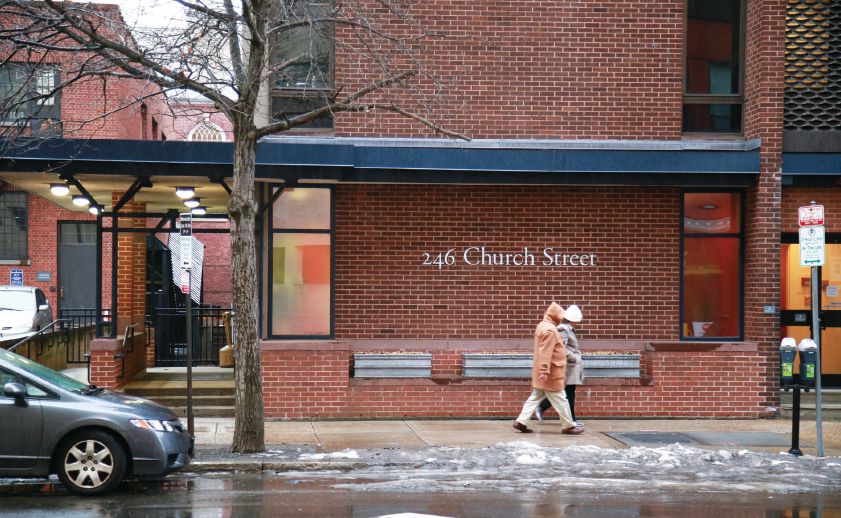
A website went live Monday morning that calls for the total elimination of the student effort portion of financial aid — the latest push in a yearslong battle between students and the administration to level the playing field for low-income students at Yale.
The website, financialaidatyale.org, was created by undergraduate activist group Students Unite Now and presents a report criticizing Yale for its failure to eliminate the student effort — a yearly sum that students on financial aid must contribute to their educations — despite the challenges the expectation poses for students on financial aid and the size of the University’s swelling endowment. The website also features more than 100 narratives from students illustrating the hardships that the student effort has imposed on their lives at Yale. Isadora Milanez ’18, an organizer for SUN, said the purpose of the project is to bring conversations about financial aid policy into the open and to pressure the administration to act.
“We’re ready to put it on Yale to take the next step to eliminate the [student effort],” Milanez said.
Milanez said the website is the culmination of an ongoing project by SUN — which advocates for minority groups in general and not just low-income students — to bring financial aid issues to the forefront of campus conversations. She deferred to SUN organizer Jesús Gutiérrez ’16 for information on the project’s timeline and logistics, but Gutiérrez did not respond to requests for comment.
The new website has received the endorsement of 12 campus groups, including the Asian American Studies Task Force, Fossil Free Yale and Yale NAACP. Students are also invited to submit testimonies about the negative impact the student effort has on campus life. Current testimonies come from students of all financial backgrounds — not just those on financial aid — and detail stories from having to quit extracurriculars to considering dropping out altogether due to financial pressure.
“Yale is stealing from me,” Cristobal Trujillo ’16 wrote. “Yale has the ability to make people do unpleasant things and be thankful for it — office jobs, library jobs all of which I have held unwillingly but inevitably because I am not rich enough to own even my own time.”
The website’s unveiling comes three months after Dean of Undergraduate Admissions Jeremiah Quinlan and Director of Financial Aid Caesar Storlazzi announced that the student summer income contribution would drop from $4,050 to $2,700 for students with the highest need and $3,600 for all other students. The term-time student employment expectation has remained at its current value of $3,350 for upperclassmen. The shift came in response to student activism, as well as a January 2015 Yale College Council report that called for several changes to financial aid policy, among them the elimination of the student effort.
But there is widespread support among the student body for the elimination of the student effort entirely, as opposed to a reduction in either the student summer income contribution or the student employment expectation. Last March, SUN staged a protest against the student effort in front of Woodbridge Hall, and then they presented a document containing 1,100 signatures to five top Yale administrators and every residential college master.
At the December town hall, Quinlan and Storlazzi said the reduction measures were not final and that conversations about further reforms were ongoing. Storlazzi also emphasized, however, that Yale could not afford to completely do away with the student effort, despite the University’s enormous endowment.
Still, SUN’s report begins by highlighting the University’s multibillion-dollar endowment gains over the past few years, contrasting this success with the financial contribution expected of students on financial aid, who constitute 52 percent of Yale’s undergraduate population. Storlazzi declined to comment.
Students on financial aid interviewed said the administration’s measures to alleviate the burden that the student effort causes have failed to solve the problem of “two Yales”: widely divergent undergraduate experiences depending on financial need. Milanez said the website again demonstrates a student consensus that the student effort should be eliminated.
“I think [the December announcement was] a good step, but I don’t think it solves the problems that we’ve talked about here,” said Matthew Massie ’17, who submitted a testimonial to the website. “Only the total elimination of this fee is going to solve these divisions that it is creating along race and class lines here at Yale.”
Massie told the News his comparatively weak secondary school background made it difficult for him to juggle the demands placed on him after arriving at Yale, which has led him to drop classes. Going into his senior year, Massie has only two ways to graduate on time: take six classes his senior fall or take classes during the summer. However, the student summer income contribution rules out any hope of being able to take summer classes.
Likewise, H. McCormick ’17, who prefers “they” pronouns, said the student summer income contribution prevents them from taking unpaid internships, which has created anxiety about job prospects after Yale. Furthermore, McCormick added, the student effort puts an unnecessary strain on their academic performance, as they typically work 17 to 20 hours per week.
“I came to this institution to learn, but right now all it feels like I’m doing here is working,” McCormick said.
For the 2015–16 academic year, Yale’s financial aid budget is $122 million.







